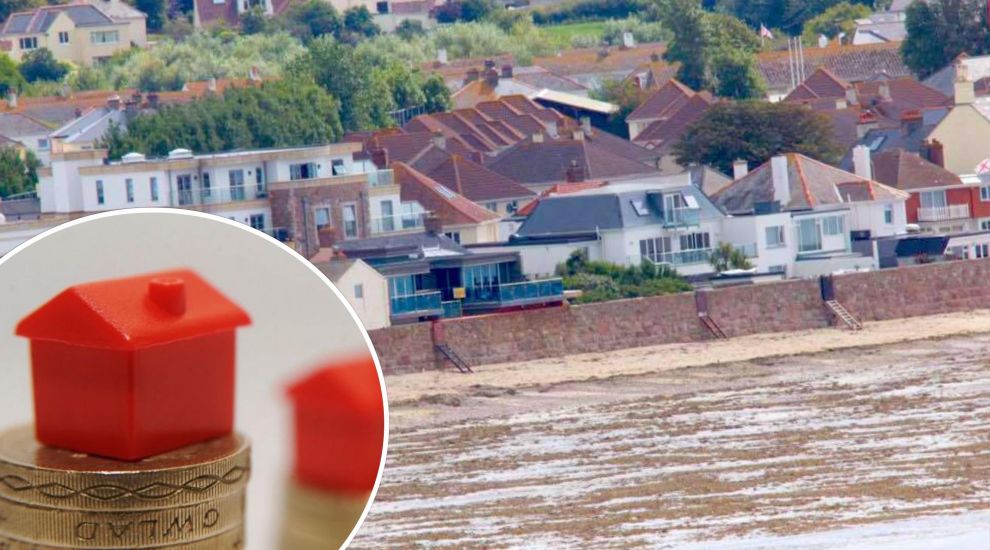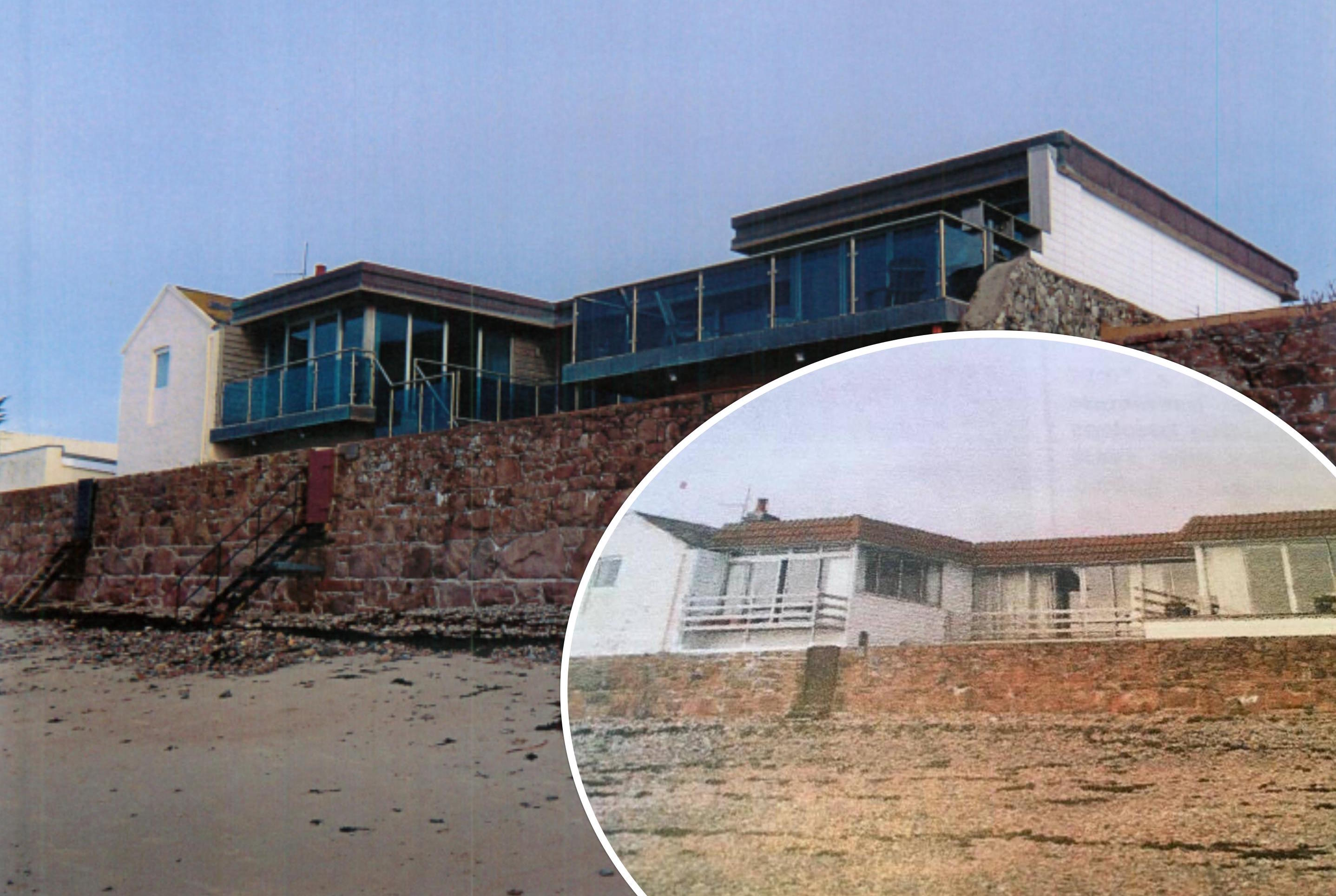


Coastal homeowners wishing to sell, lease or develop their properties on the Island’s southern shoreline could be hit with five-figure bills for Foreshore encroachments by the States, it has been confirmed - despite no official policy being in place.
The news comes after Express revealed last month that the States had collected more than £70,000 from three coastal properties over breaches of the ill-defined ‘Foreshore’ - a strip of land between high and low tide gifted by the Queen to the Public of Jersey in 2015.
Members of the public blasted the move as a “Backdated Foreshore Infringement Tax (BFIT)" on social media, while St Clement Deputy Simon Bree, whose Parish is affected by the move, said that it, “...smacks of a moneymaking exercise and government with a big G” and called for transparency over the billing process.
Now, three weeks after the revelations, DfI has moved to clarify its position. In a statement, a spokesperson reiterated the Department’s, “...duty to protect the land interests owned by the people of Jersey, the Public.”
Despite admitting that an official policy on encroachments was yet to be issued, the Department confirmed that it would be pursuing property owners for compensation following three “trigger events”: notification of the potential sale or contractual lease of a property, a Planning application or the owners approaching the Department themselves.
They said that even if Planning approval had been obtained for Foreshore encroachments such as balconies or beach steps by a previous owner, the current owner would still be expected to pay.

Pictured: Even properties whose encroachments were placed there by previous owners - as was the case for Alan Luce's Roche de la Mer (above) - will still be billed, according to DfI.
The billing, it was argued, also fell in line with a 2006 Ministerial decision to, “...extract the optimum benefit from the Public’s property assets.”
“The Department cannot simply ignore a pending transaction involving land that may belong to the Public,” a spokesperson commented. “To do so would run counter to its obligations to achieve best value for the public purse and risks perpetuating a defective chain of title. What the Department has done since 2015 is to negotiate a fair settlement that reflects the circumstances of each case," the statement read.
“The Department will soon issue a policy on encroachments, which will draw on its experiences to date as well as remaining consistent with any relevant legal duties and the 2006 Ministerial decision."
The statement also mentioned that some content in the local media had caused, “...confusion and contains comments that are not accurate.” When asked for clarification, a spokesperson confirmed that this related to erroneous reports on social media that all of the Foreshore in the St Helier area had been sold for £22,500. The transaction in fact referred to a local housing association that had paid compensation for encroachments including a set of beach steps.
Following DfI’s clarifications, Alan Luce, who previously hit out at the States after he alleged he was “bullied” into forking out £30,000 for breaches placed there by a previous owner and nearly lost the sale of his former Greve d’Azette home as a result, told Express: “There is patently no policy with regards to the Foreshore. To me it is astonishing that [DfI] refer to a Ministerial Decision from 2006 to defend their actions, but they couldn’t tell me that at the time… It seems like maverick action.
“The Department shouldn’t discriminate between seller and property owners… [DfI] need to be responsible and turn around and say something to everyone with encroachments across the Foreshore, and not rely on Planning consents and sales and only then say, ‘We’re going to talk.’”
Moreover he drew attention to the original contract between the Queen and the Public, which stated that the land was handed over “vices cachés” - warts and all - and that, “...any right of access or area of exploitation exercised as a matter of longstanding habitual and recognised custom by the general public of the Island or by any member thereof shall be and remain unaffected by this contract of gift cession and transfer.”

Pictured: Alan Luce, who paid nearly £30,000 to the States when selling his home, still felt that DfI's approach was unfair and feared that it would cause coastal property sellers undue anxiety at an already stressful moment in their lives.
“I want to know who this is actually benefiting. They say it’s in the interests of the Public, but I am a member of the Public and this affects so many properties along the coast,” Mr Luce said, adding that he did not believe that Her Majesty would have gifted the land to the Public in the knowledge that the Public would be billed over encroachments on it.
That view was echoed by chartered surveyor Julian Mallinson, who lost £19,500 over encroachments - £3,000 alone of which related to wooden steps to the beach approved by the Queen’s own land administrator while the land was still in her ownership.
“Whilst I agree with the 2006 Ministerial decision that Jersey Property Holdings (JPH) has a duty to extract the optimum benefit from the Public’s property assets, I believe that JPH is acting well outside its remit and that neither the Minister’s or the Crown would condone the manner in which JPH are behaving,” he said.
Mr Mallinson added that the States were acting as a “bad neighbour” for, “...insisting on payment for every perceived encroachment/maintenance right and ratification whilst refusing to listen to any legal argument disputing its claims.”
“As JPH are, on their own admission, waiting for properties to be in the process of being transacted prior to submitting their demands for payment they know that they can effectively rewrite the rule book as vendors have a simple choice to pay up or not sell.”
Q&A: Everything you need to know about the Foreshore issue
In-depth: The man who paid £30k to the States just to sell his house
Sea wall row: States rake in £70k in just 12 months
Sea wall row: Queen-approved wooden staircase formed part of £20k States bill
Comments
Comments on this story express the views of the commentator only, not Bailiwick Publishing. We are unable to guarantee the accuracy of any of those comments.